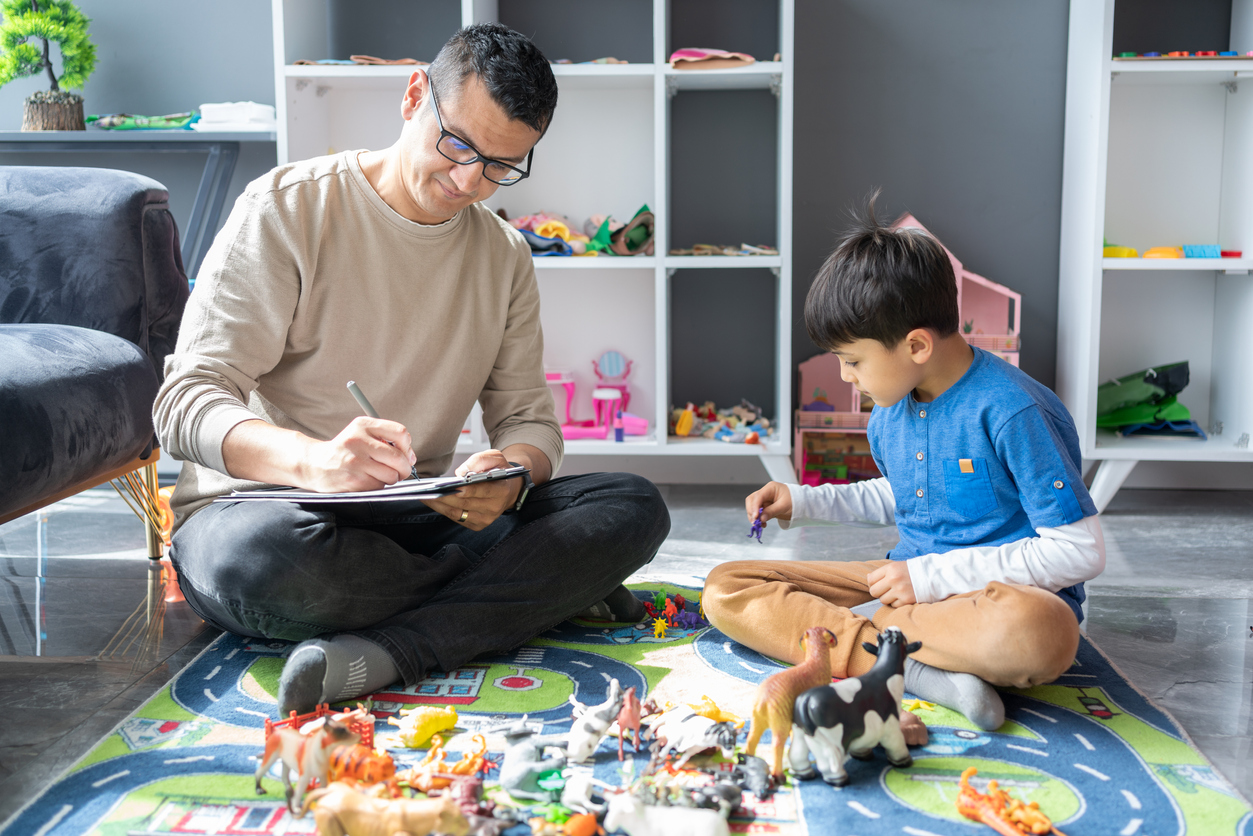How to Help Children with ADHD

Attention Deficit Hyperactivity Disorder (ADHD) is a neurodevelopmental disorder that affects millions of children worldwide. It can pose challenges for children in various aspects of their lives, including their academic performance, social interactions, and emotional well-being. However, there are several effective strategies for managing and supporting children with ADHD. In this article, we’ll explore some of these strategies, with a particular focus on play-based learning and the role of therapy and medication.
Understanding ADHD
Before we delve into specific strategies, it’s essential to have a basic understanding of ADHD. ADHD is characterized by symptoms such as inattention, hyperactivity, and impulsivity. These symptoms can make it difficult for children to focus, follow instructions, and control their impulses, which can, in turn, lead to challenges in school and other areas of life.
Play-Based Learning: The Power of Play
One of the most effective ways to help children with ADHD is through play-based learning. Play is a natural and enjoyable way for children to engage their minds, develop important skills, and gain better control over their impulses. Here are some ways to incorporate play into your child’s daily routine:
- Structured Playtime: Create structured playtime with specific activities and clear expectations. Board games, puzzles, and building toys can help improve focus and problem-solving skills.
- Outdoor Activities: Encourage outdoor play like running, biking, or team sports. Physical activity helps children release excess energy and improve concentration.
- Art and Creativity: Art projects, drawing, and craft activities can be therapeutic for children with ADHD. These activities allow them to express themselves and enhance their fine motor skills.
- Sensory Play: Activities involving sensory experiences, like playing with sand, water, or textured materials, can help children with ADHD stay engaged and regulate their sensory input. Finding new and exciting sensory play opportunities is easier than ever thanks to companies like HandMoto.
Therapy: Behavioral and Cognitive Approaches
Therapy plays a vital role in managing ADHD in children. Behavioral and cognitive therapies can help children learn how to cope with their symptoms and develop strategies for better self-control. Here are some key therapy approaches:
- Behavioral Therapy: Behavioral therapy aims to change problematic behaviors and reinforce positive ones. Techniques like token systems, time management, and self-monitoring can be effective.
- Cognitive-Behavioral Therapy (CBT): CBT helps children identify negative thought patterns and develop strategies to manage their emotions and behavior. It’s particularly useful for older children and adolescents.
- Parent Training: Parents can benefit from training and counseling to understand and support their child better. Learning how to set clear expectations, provide consistent structure, and use positive reinforcement can significantly improve a child’s behavior.
Medication: When and How
In some cases, medication may be a necessary component of ADHD management. Medication is usually considered when other strategies alone are insufficient in helping a child control their symptoms. Some common ADHD medications include:
- Stimulants: Stimulant medications like methylphenidate (e.g., Ritalin) and amphetamine-based drugs (e.g., Adderall) are commonly prescribed. They work by increasing the brain’s dopamine and norepinephrine levels, helping to improve focus and self-control.
- Non-Stimulant Medications: In cases where stimulants are not effective or cause side effects, non-stimulant medications like atomoxetine (Strattera) may be prescribed. These medications affect norepinephrine levels.
- Monitoring and Adjusting: Medication should be closely monitored by a healthcare professional, and dosages may need to be adjusted to find the right balance between symptom control and minimizing side effects.
Complementary Strategies for ADHD Support
In addition to play-based learning, therapy, and medication, several complementary strategies can further help children with ADHD:
- Healthy Diet: A balanced diet with minimally processed foods and added sugars can have a positive impact on a child’s attention and behavior.
- Regular Sleep: Ensuring your child gets enough sleep is crucial. A consistent sleep schedule can help reduce impulsivity and improve attention.
- Routines and Schedules: Establishing clear routines and schedules can provide structure and predictability, which can be comforting for children with ADHD.
- Educational Support: Collaborate with teachers and school staff to develop an individualized education plan (IEP) or 504 plan to address your child’s specific needs in the classroom.
Supporting a child with ADHD can be a challenging journey, but with the right strategies, it is entirely manageable. Play-based learning offers a fun and effective way for children to develop critical skills, while therapy and medication can help them learn how to cope with their symptoms and regain control. Remember, every child is unique, and what works best may vary from one to another.
MindRx Can Help
In your journey to support a child with ADHD, remember that you’re never alone. At MindRx, we’re here to provide guidance, support, and expert advice every step of the way. Our commitment to enhancing the well-being and potential of children with ADHD drives us to explore innovative solutions, like those offered by HandMoto, and to share the most effective strategies with you. If you have any questions, need further assistance, or simply want to learn more about how we can help, please don’t hesitate to reach out to us. Your child’s success is our priority, and we’re here to support you in making a real difference. Together, we can help your child thrive.